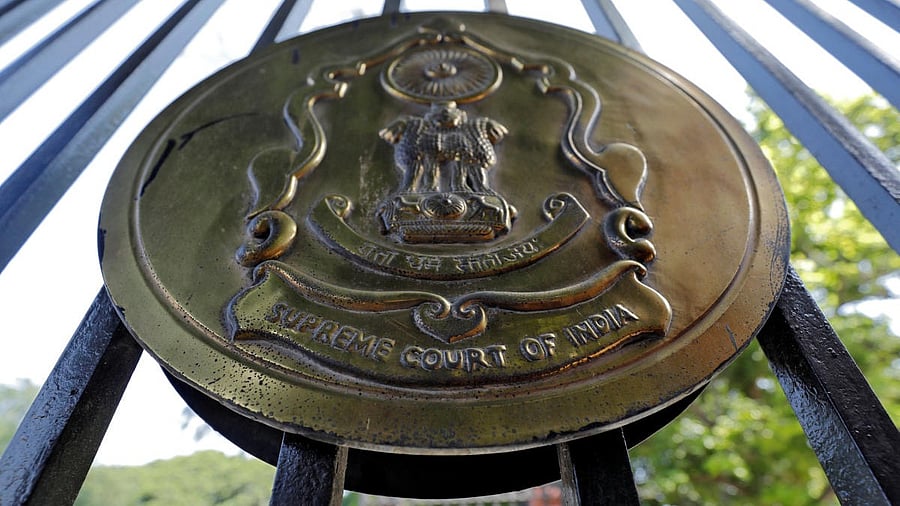
The emblem of Supreme Court is seen on a gate of the court.
Credit: Reuters Photo
New Delhi: The Tamil Nadu government on Saturday raised questions over validity of the Presidential reference related to fixing of timelines for the President and the Governors to clear the Bills passed by the state legislatures.
Responding to a written submission made by the Union government, the DMK government claimed the Centre tried to unsettle the settled principle laid down in the April 8, 2025 judgment in the case of the State of Tamil Nadu Vs the Governor of Tamil Nadu.
"Entertaining the instant reference would erode the finality of Article 141, undermine judicial independence, and distort the separation of powers. This court should thus decline to answer the reference and return it as constitutionally impermissible," it said.
In a brief note, the state said the presidential reference of May 13, 2025 raised questions concerning the scope of gubernatorial powers under Article 200 and Presidential powers under Article 201.
"However, these questions have already been comprehensively settled by the Supreme Court in the State of Tamil Nadu Vs the Governor of Tamil Nadu, (2025), which authoritatively clarified the constitutional duties of Governors with respect to assent," it said.
It maintained the questions of the reference were already covered by the said judgement as well as that of State of Punjab Vs Principal Secretary to the Governor (2024) and State of Telangana Vs Governor (2023).
Tamil Nadu also stated that Article 143 of the Constitution cannot be used to reopen or nullify binding judgments.
In Cauvery Water Disputes Tribunal, Re (1993), this court held that advisory jurisdiction cannot be converted into appellate jurisdiction, it pointed out.
"Once a legal question is adjudicated under Article 141, it attains finality and can only be revisited through review or curative jurisdiction, not through a presidential reference. The court has consistently declined to answer questions already decided, purely political in nature, or beyond judicial determination," the state said.
It emphasised the Constituent Assembly debates and subsequent case law made it clear that Supreme court is not bound to answer every reference.
This court has exercised its discretion to decline answering references that are inappropriate, incapable of judicial determination, or politically loaded, it said.
"Moreover, advisory opinions under Article 143 are non-binding, as reaffirmed in Ahmedabad St Xavier’s College (1974). It is well settled principles across the world, opinion rendered on advisory jurisdiction is like a opinion given to clients by law officers and even if opinion is rendered it is not binding on any court," it said.
